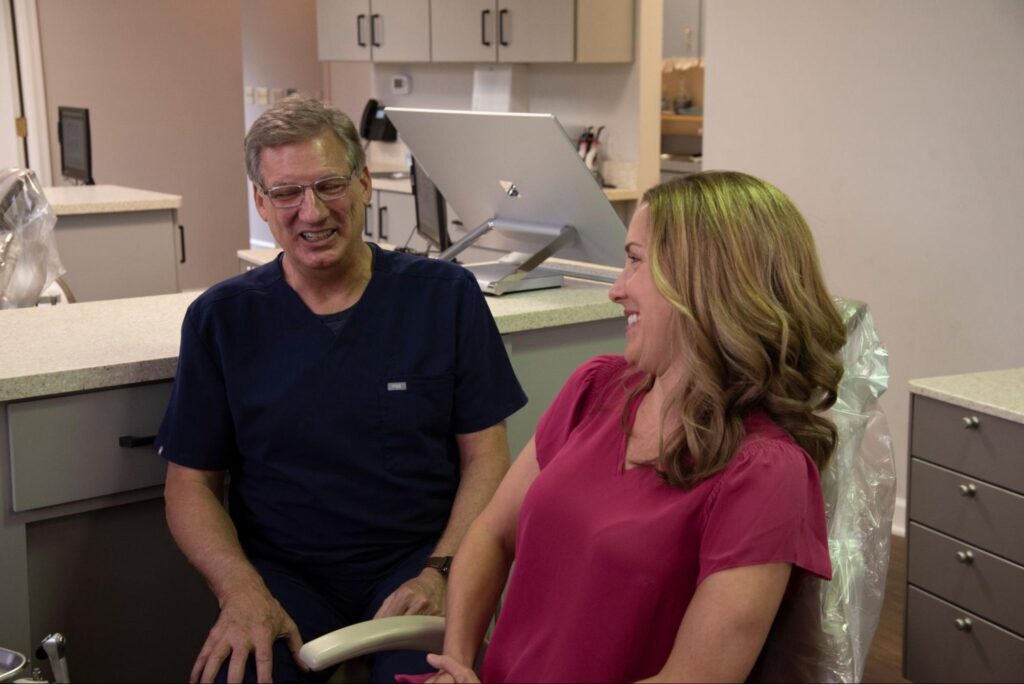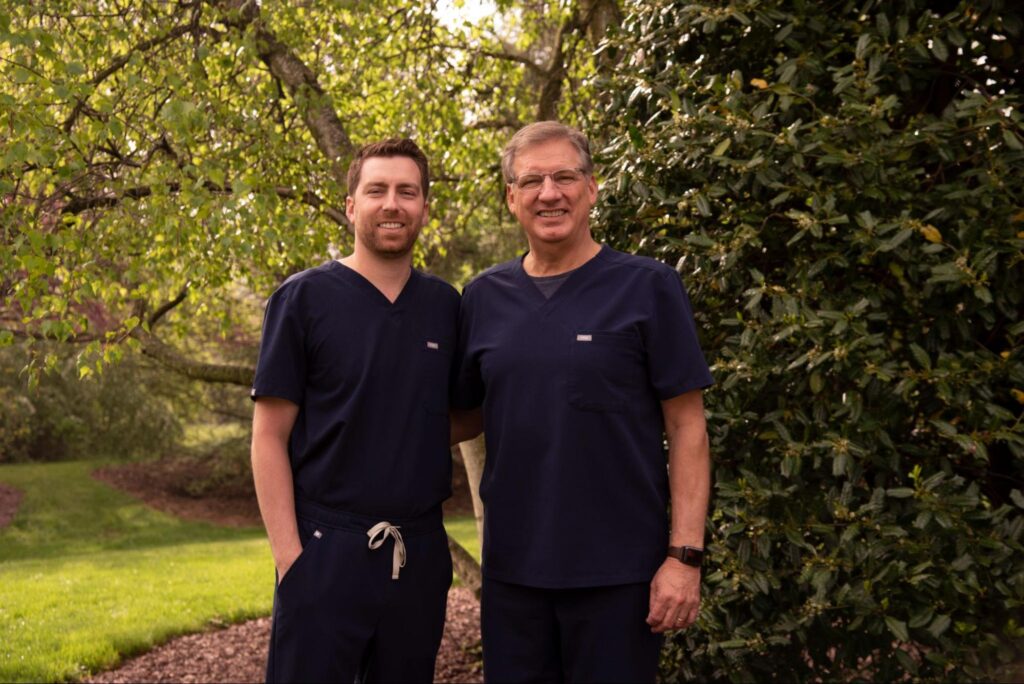Orthodontic treatmentis a major step toward a more confident smile. But if you’re considering braces, clear aligners, or another treatment option, it’s natural to have concerns, especially about potential discomfort. The idea of moving your teeth might sound a bit intimidating, but rest assured: while some discomfort is expected, most patients find it to be manageable. Dr. Fred Albaand Dr. Jeff Albaat Alba Orthodonticsin Mechanicsburg are dedicated to providing not only effective orthodontic treatment but also a comfortable and supportive experience from start to finish.
What Does Orthodontic Treatment Feel Like?
Let’s start with the big question: Is orthodontic treatment painful? It’s important to understand that while orthodontic treatment can cause some discomfort, it’s far from the painful ordeal many people imagine. In fact, most patients describe the sensation as more of a mild soreness rather than pain.
When Dr. Fred Alba or Dr. Jeff Alba applies your braces or gives you your first set of clear aligners, you’ll likely feel some pressure on your teeth. This pressure is what gradually shifts your teeth into their proper positions. For the first few days, this pressure may cause soreness in your teeth and gums, but it’s nothing too severe—many patients say it’s similar to the feeling after a tough workout. Over-the-counter pain relievers like ibuprofen are typically enough to ease any discomfort.
Why Does Orthodontic Treatment Cause Discomfort?
The discomfort from orthodontic treatment is a sign that it’s working. Orthodontics relies on applying gentle but steady pressure to your teeth, which encourages them to move. This pressure triggers the remodeling of the bone around your teeth, allowing them to shift into their new positions. While this process is effective, it can cause your teeth to feel sore for a few days after each adjustment.
At Alba Orthodontics, both Dr. Fred Alba and Dr. Jeff Alba understand that every patient is different. Some people might feel more discomfort than others, but the important thing to remember is that it’s temporary. With time, your teeth will adjust to the appliance, and any discomfort you experience will fade.
What to Expect with Braces and Aligners
Both traditional braces and clear aligners work by gradually shifting your teeth into better alignment, but they can cause different sensations.
Braces
If you’re getting traditional metal braces, you may feel some tightness after they’re first placed or after adjustments. This is perfectly normal. Braces consist of brackets attached to your teeth, connected by a wire that your orthodontist adjusts periodically to keep your teeth moving in the right direction. After these adjustments, you might experience some soreness in your teeth or gums for a couple of days. Dr. Fred Alba and Dr. Jeff Alba will make sure to adjust the braces in a way that minimizes discomfort while still ensuring progress toward your ideal smile.
Clear Aligners
Clear aligners, such as Invisalign, are another popular option. These removable, custom-made trays gradually move your teeth over time. While the initial pressure from a new aligner may cause mild discomfort, many patients find aligners less noticeable and more comfortable than braces. You’ll receive a new aligner set every one to two weeks, and the first couple of days with a new set can come with some soreness as your teeth adjust to the fresh pressure.
Regardless of which option you choose, the discomfort should be short-lived. At Alba Orthodontics, Dr. Fred Alba and Dr. Jeff Alba are committed to making sure your treatment is as pain-free as possible.
Managing Discomfort During Orthodontic Treatment
If you do experience discomfort during your orthodontic treatment, there are several simple strategies to help manage it.
Over-the-Counter Pain Relief
Mild pain relievers like ibuprofen or acetaminophen can help alleviate any soreness you may experience. Dr. Fred Alba often recommends taking a pain reliever about an hour before an adjustment to minimize any discomfort.
Orthodontic Wax
Braces can sometimes irritate the inside of your cheeks or lips. Using orthodontic wax to cover the brackets will help reduce friction and prevent irritation. Dr. Jeff Alba always ensures that patients leave the Mechanicsburg office with plenty of wax and detailed instructions on how to use it effectively.
Soft Foods
Eating softer foods during the first few days after getting braces or a new aligner set can also help minimize discomfort. Stick to things like smoothies, soups, yogurt, and mashed potatoes until your teeth feel better. Avoid crunchy, hard, or sticky foods that might add extra pressure to your teeth or cause irritation.
Rinsing with Salt Water
An easy saltwater rinse can soothe sore gums and minimize inflammation. In a cup, mix together a teaspoon of salt and a cup of warm water. Swish it around your mouth a few times a day for relief.
Long-Term Comfort
The great news is that any discomfort from orthodontic treatment is temporary. After the initial adjustment period, most patients get used to their braces or aligners and feel little to no discomfort for the majority of their treatment. Dr. Fred Alba and Dr. Jeff Alba make sure that their patients at Alba Orthodontics in Mechanicsburg are always informed about what to expect at every stage of their treatment and offer guidance on how to stay as comfortable as possible.
Enjoy the Confidence of a Well-Cared-For Smile
Orthodontic treatment may come with some temporary discomfort, but it’s far from unbearable. The team at Alba Orthodontics, led by Dr. Fred Alba and Dr. Jeff Alba, make sure you feel supported throughout the process. Our Mechanicsburg officeis dedicated to providing top-notch orthodontic care in a warm, patient-focused environment.
So, while you might feel a little soreness at times, know that it’s part of the process and a sign that your treatment is working. And the best part? It all leads to a bright smile that you’ll enjoy for years to come. Schedule your consultationto see how we can help you.


